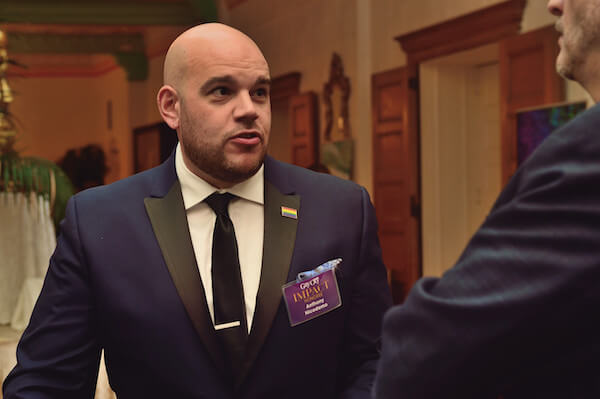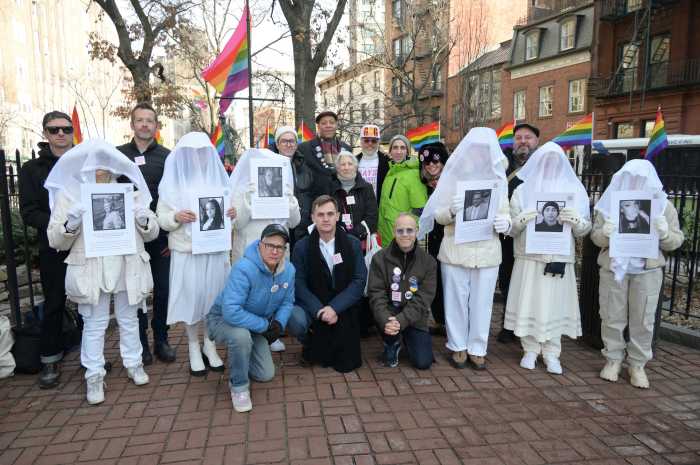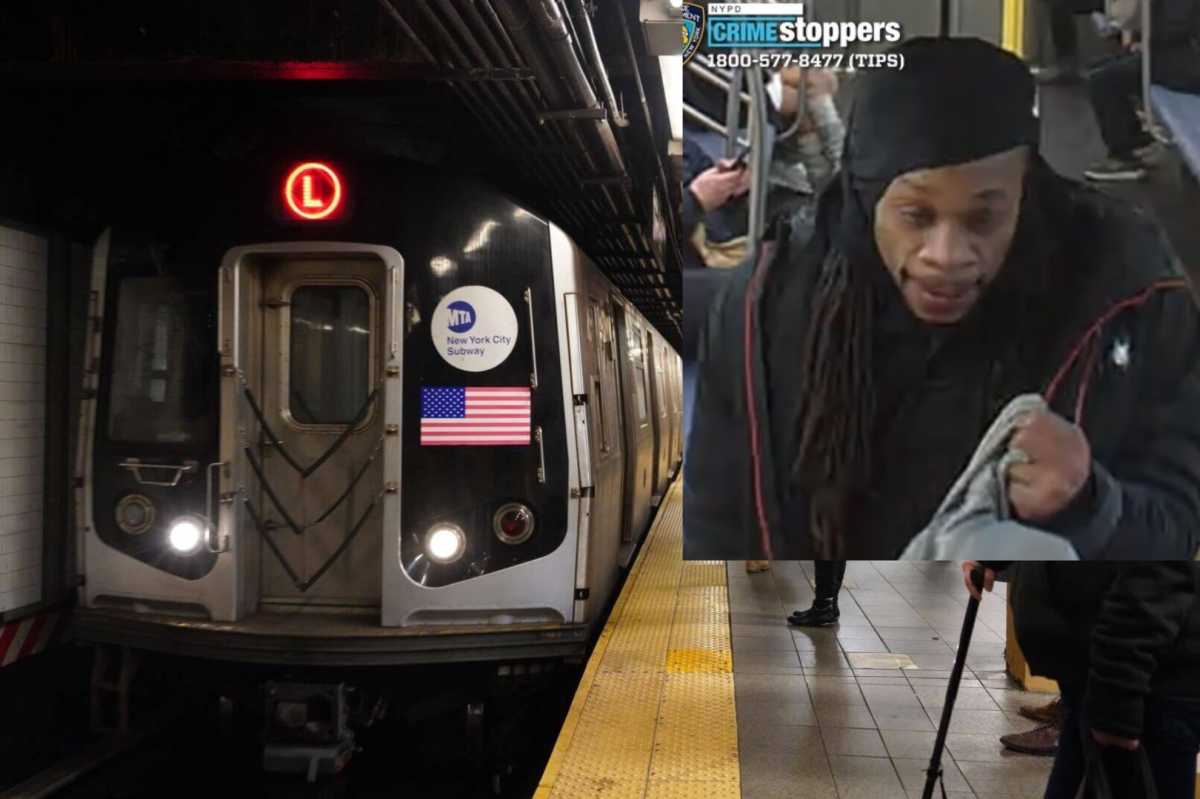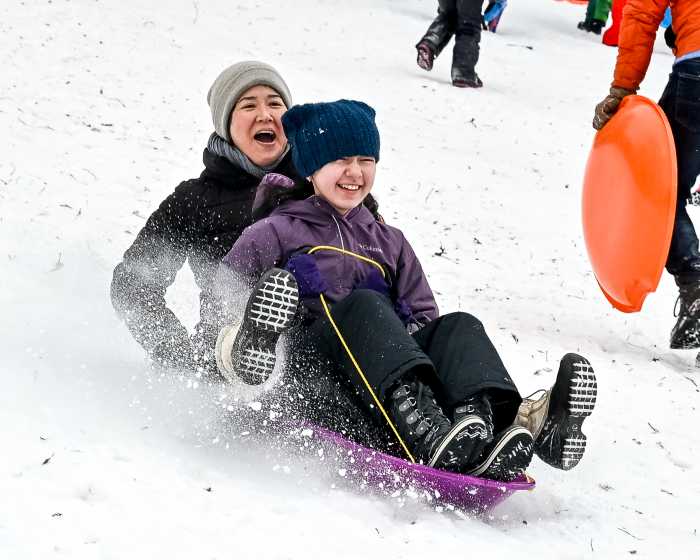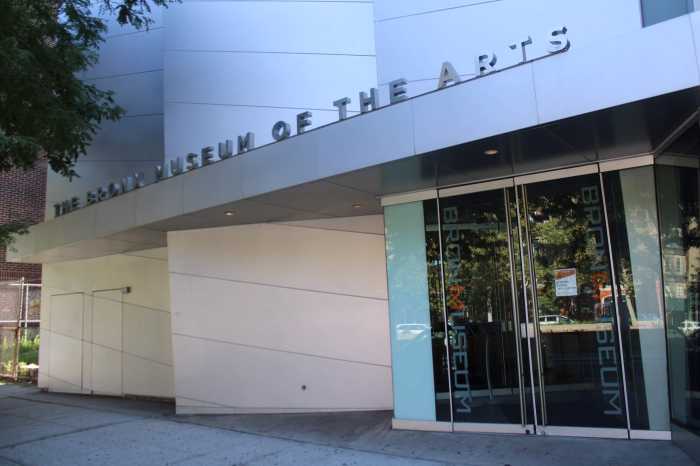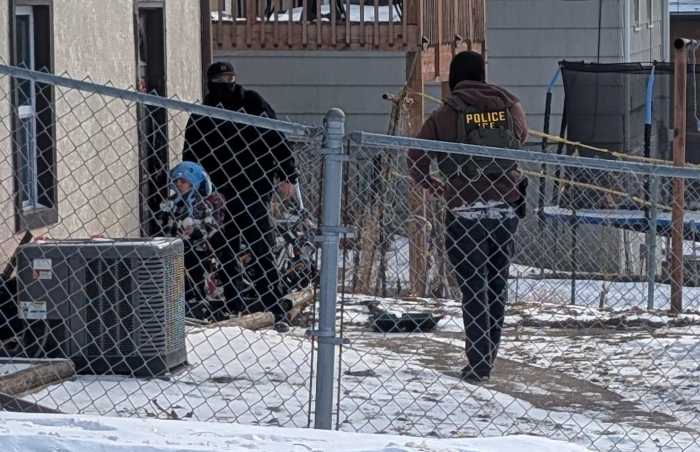Longtime Latino Commission on AIDS leader who served Dinkins as Human Rights commissioner was 61
Dennis deLeon, the city’s Human Rights commissioner under Mayor David Dinkins and, for 15 years, the president of the Latino Commission on AIDS, died on December 14 at the age of 61. His partner of 32 years, Bruce Kiernan, said the cause of death was heart failure.
In his years with the Latino Commission, which followed his service in the Dinkins administration, deLeon built a fledgling New York-based effort into the nation’s leading organization battling the HIV/ AIDS epidemic in the Hispanic community. The coordinator of National Latino Awareness Day, the group now does work in 40 states and Puerto Rico.
Guillermo Chacon, who earlier this year succeeded deLeon as president of the Latino Commission, told Gay City News, “We worked together for 15 years. He was not only my boss, but my mentor, and we developed a family relationship. It is rare in a partnership like this for two people to honor and respect each other the way we did.”
Andrés Duque, who served as a top deputy to deLeon for 14 years until late 2008, said, “He was my hero.”
“He always kept his eye on the prize,” Duque said of deLeon’s leadership at the Commission, adding, “He allowed a space for people to take things in their own directions” as the organization grew and broadened its mission in New York’s Latino community and nationwide.
Born in Los Angeles in 1948, deLeon graduated from Occidental College and earned a law degree from Stanford in 1974. Early in his career, he served in the US Department of Justice, and was later a top official in the city’s Corporation Counsel office under Mayor Ed Koch. He first worked for Dinkins as his deputy Manhattan borough president in 1988. After Dinkins became mayor in January 1990, deLeon was named his Human Rights commissioner and the highest ranking out LGBT city official to date.
Among the contentious issues deLeon faced as Human Rights commissioner were the violent clash between the Hasidic and Caribbean communities in Crown Heights, bad relations between Dominican Americans and the police in Washington Heights, and the controversy over the exclusion of LGBT New Yorkers from Manhattan’s St. Patrick’s Day Parade. Openly gay marchers have participated in only one St. Pat’s Parade, in 1991, when they were led by Dinkins, but showered with taunts and beer by angry onlookers.
During his tenure at the Latino Commission on AIDS, deLeon served as the Manhattan delegate to the Civilian Complaint Review Board, which has authority to investigate allegations of police misconduct brought by the public, and served on the boards of Gay Men’s Health Crisis, the New York City HIV/ AIDS Planning Council, which oversees disbursement of federal treatment dollars, and the Federal AIDS Policy Partnership, a nationwide coalition of service providers.
Christine Quinn, the out lesbian City Council speaker, released a statement saying of deLeon, “He touched countless lives –– from his days as a young attorney helping migrant workers in California to his building of the Latino Commission on AIDS into a powerful force in the fight against HIV/AIDS. During his time as the Human Rights commissioner, he called attention to pervasive discrimination in employment, housing, and public accommodations suffered by those living with HIV/AIDS.”
Sean Strub, the founder of POZ magazine and now president of Cable Positive, the telecommunications industry’s AIDS effort, said, “Dennis wasn’t a radical — he wasn’t often a part of demonstrations or extreme rhetoric — but he was highly influential with many who were, as he identified lapses or errors in policy and persuasively made them priorities for others.”
James Albino, who works in the White House Office of National AIDS Policy, in an email message, said, “Dennis and I did not agree all the time; when we agreed we would never acknowledge it. When we fought, we sometimes fought bitterly but always respectfully. You always knew where Dennis stood on an issue; none of these subtle messages with sub context, always full bore, usually right… If you had a problem and Dennis was on your side, you had a tireless and brilliant ally. If he was on the other side, you had two problems; one of them was a tireless and brilliant opponent.”
Chacon credited deLeon as a pioneer in forging alliances with other people of color communities, including African Americans and Asian/ Pacific Islanders, affected by HIV — something he said remains rare across the nation.
Duque said deLeon exhibited a keen political sensitivity in assembling coalitions within New York’s sprawling and diverse Latino community as he built the Commission. Acknowledging that other Latino organizations — such as the Hispanic AIDS Forum and Alianza Dominicana –– also address HIV in the community, deLeon charged Duque with establishing Mano a Mano, an umbrella organization for dialogue and cooperation among more than a dozen groups citywide. A key strength of the effort, Duque explained, was that it was launched as an LGBT rights program, focused on HIV prevention, but also tackling larger issues, such as homophobia and anti-immigrant laws and policies, that contribute to the epidemic’s spread.
Noting that many community organizations worry about larger citywide initiatives “coopting their mission,” Duque said that deLeon’s approach “was his full faith and credit. It was always about partnering.”
Xavier Morales, who with Strub was a founder of POZ, recalled being impressed at deLeon’s ability to move among the city’s elites, while remembering where he came from. At a benefit event with “a mostly upscale white crowd,” Morales said, “Dennis was working the room, and he came to me and said hello. I could tell he sensed my awkwardness; his warmth and welcome made me feel more comfortable. It was like he knew what it felt like to be on the outside, to feel awkward.”
Duque said deLeon maneuvered, on his own terms, between activist circles and official policymakers. Sometimes, he added, his agreement with city officials led deLeon to “stand against a coalition very publicly,” something that led to periodic friction.
An occasional op ed contributor to Gay City News, deLeon wrote several articles between 2006 and 2008 in which he wrestled with the wisdom of proposals put forward by Dr. Thomas R. Frieden, the former city health commissioner (who now heads up the federal Centers for Disease Control and Prevention), that sought to increase HIV testing –– and enable earlier access to treatment –– by ending the requirement that New Yorkers give written consent before being tested for HIV. In June of this year, on behalf of the Commission, deLeon joined leaders from Harlem United and the National Black Leadership Commission on AIDS at a press conference to endorse legislation in line with Frieden’s thinking. The approach, however, continues to divide the AIDS community; Gay Men’s Health Crisis and Housing Works are among those who argue against the bill.
Strub also opposes the legislation deLeon supported, but he noted, “Dennis is someone who could disagree without being disagreeable. He was no pushover and never shy about speaking his mind, but he did so in a respectful way that earned everyone’s admiration.”
In the spring of 2008, when a firestorm erupted over phony City Council budget set-asides made in the names of fictitious community organizations, deLeon was among a number of leading social service providers who spoke up to argue that legitimate member item allocations provide critical resources to address health and other human needs.
Duque suggested that as a former public official, deLeon was inevitably drawn to events like press conferences and City Council hearings where he could discuss policy, and at times needed to be pulled back by his board from those efforts to focus on the nuts and bolts of running an agency, including raising money. “And,” Duque added, “he understood that to be his role.”
Strub speculated that deLeon, when he first took over at the Latino Commission, expected the battle against AIDS to be temporary — “that someday this would be over and he could get back to his intended career” in public service. Yet, Duque said, “He hated to be away from work” at the Commission. Citing deLeon’s serious health challenges in his final years, Chacon recalled, “He said, ‘I could be so sick or so weak, but I will get up to do this work.’”
In 1993, deLeon, while serving as Human Rights commissioner, came out as HIV-positive in an op ed in the New York Times. Public self-disclosure of HIV status at that time was still relatively rare and up to that point, only Kiernan, deLeon’s mother, and Dinkins were aware of his status. He wrote that he chose to go public only after years of indecision.
“When I contemplated disclosure,” he wrote in the op ed, “I felt that my hope to continue contributing to society as a lawyer and human rights activist was threatened. Would I be evaluated on my merits if I sought to be a judge, a law professor, a law firm member, or a governmental appointee?”
That article had a profound impact on Duque, who was then a young gay man coming out during and after his years at SUNY Binghamton. In an era when it was not uncommon to see people in New York City, many of them gay men, walking down the streets with KS lesions on their face, Duque was touched, “clipped the article,” and, when he later moved to New York and heard deLeon was by then leading the Latino Commission, volunteered at the agency, after which he became a full-time staff member.
“I always felt he was my mentor and sort of like my dad,” Duque said. “We had our issues, but we loved each other.”
Chacon, even though he too called deLeon a “mentor,” insisted his predecessor as the Commission’s president did not seek out that role. “He was very humble,” Chacon said. “He was always trying to engage other people… He did not tell you how to do things. He worked with you, and seeing his behavior, you learned. And those are the best kind of mentors.”
Strub, who said he has drifted from the Catholic faith of his youth, expressed envy for the fidelity that deLeon and Kiernan showed for their Catholicism. The Commission made its Latino Religious Leadership Project a major focus of its work, a controversial step, given the homophobia or neglect toward their LGBT members often found in faith communities. Chacon said many observers asked, “Why waste your time?,” which deLeon countered by saying, “I would rather have more religious leadership on our side than not on our side.”
Chacon noted that deLeon’s December 17 funeral Mass at the Parish of St. Joseph’s on West 14th Street was celebrated by six Catholic priests and a monsignor.


